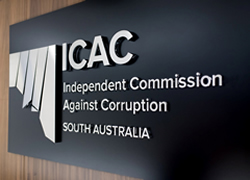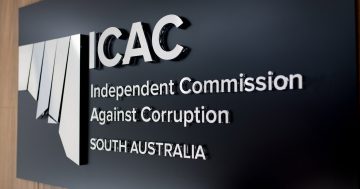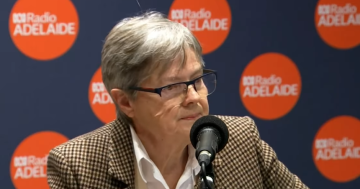 The roles of different South Australian Agencies determines the corruption risks that Public Servants are exposed to, according to the Independent Commission Against Corruption (ICAC).
The roles of different South Australian Agencies determines the corruption risks that Public Servants are exposed to, according to the Independent Commission Against Corruption (ICAC).
Reflecting on the changes to public administration over the past two decades, the ICAC said the idea of a one-dimensional ‘Public Servant’ or ‘Government bureaucracy’ no longer held true.
“Accordingly there is no ‘one size fits all’ approach to ensuring integrity in public administration,” the ICAC said.
“In short, the reality of modern public administration is far more varied in its scope and purposes than it was even a generation ago, and that marked increase in scale, complexity and orientation has created different integrity challenges,” it said.
“Over the last two decades, there has been a significant shift in the general nature and purpose of public administration, and this has affected the integrity landscape.
“Many parts of public administration no longer resemble the traditional Government department with hierarchical and fixed bureaucracies.”
The ICAC said this could bring benefits, but it also came with deficits in supervision, transparency and accountability.
The Commission said the dividing line between the public and private sphere was more porous than ever before.
“Many Government Agencies now operate within networks involving private businesses, not-for-profit organisations, industry associations and advocacy groups,” it said.
“The increased blurring of public and private sectors can often be accompanied by complex funding arrangements and multiple funding sources.
“The increased blurring of sectors also creates conditions where close associations and conflicts of interest more readily arise.”
The ICAC said that more and more, public officials required skills in procurement, contract management, negotiation, finance and commerce.
“More work needs to be done to ensure that Agencies possess these necessary skills at the levels and in the areas where they are currently required,” it said.









